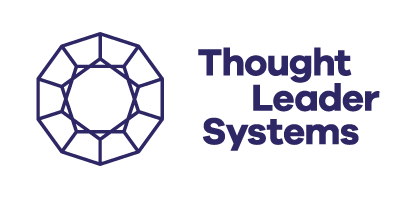CRM projects often fail due to a lack of a strategy that includes all objectives, expectations and requirements. Anyone who wants to "just get started" is in a bad position.
 Many factors must be considered and taken into account for a successful CRM strategy.
Many factors must be considered and taken into account for a successful CRM strategy.
The CRM strategy defined in advance always determines the success or failure of complex endeavours such as the introduction or expansion of customer relationship management projects. But how do you develop a strategy that is really successful?
A key factor for a successful CRM strategy is therefore the involvement of employees. If they are not sufficiently trained or convinced of the benefits of the new system, the utilisation of the CRM system will fall short of expectations. User acceptance is crucial, and without the right training and communication, even the best systems can remain ineffective.
Another problem is that CRM projects are almost always seen as purely technical implementations. Instead, comprehensive change processes are required within the company, which require careful planning and the strong involvement of all stakeholders.
And here comes the next stumbling block: if companies do not know exactly what they want to achieve with the CRM system, they lack the groundbreaking direction that is necessary for a successful implementation. If there is no understanding of the company's own business processes and customer needs, this means that the selected CRM system is not optimally tailored to the specific requirements or cannot cover them.
This is often also due to the fact that the selected CRM system simply does not match the actual needs of the company. There is simply a lack of expertise to look behind the marketing phrases of the CRM providers. The problems that result from this include a lack of integration options with existing systems or problems with data migration. If the technical aspects are not carefully planned and implemented in advance, they can lead to considerable delays and additional costs.
Read on to find out how to set up a successful CRM strategy and keep an eye on all factors.
Understand your business goals and customer needs
The first step in developing a successful CRM strategy is to understand your business objectives and the needs of your customers. What do you want to achieve with your CRM strategy? Typical goals could be to increase customer satisfaction, increase customer loyalty or optimise the sales process.
It is equally important to know the needs of your customers. Use customer surveys, feedback and data analyses to get an accurate picture of your target group. Segment your customers according to demographic characteristics, purchasing behaviour and preferences in order to identify specific needs and wishes. A deep understanding of your target group enables you to create tailored offers and personalised experiences.
Analyse your processes and systems for the CRM strategy
Before implementing a new strategy, you should carry out a thorough analysis of your current processes and systems. Identify strengths and weaknesses in your existing customer relationship management practices. What tools and technologies do you already use? What data do you collect and how is it utilised? This analysis will help you identify gaps and areas for improvement.
Create a detailed overview of your existing systems, including data sources, integration points and usability. This will give you a clear idea of which processes can be optimised or automated and which technologies may need to be replaced or supplemented.
Define clear CRM goals and KPIs
Clear goals and measurable key performance indicators (KPIs) are crucial to the success of your CRM strategy. Make sure that your goals are specific, measurable, achievable, relevant and time-bound (SMART). Examples of CRM targets could be: "Increase customer satisfaction by 20 per cent within the next twelve months" or "Reduce customer churn by 15 per cent in the next year".
KPIs could include the number of returning customers, the average response time or the number of upsell transactions. Also define qualitative goals, such as improving customer relationships or increasing brand loyalty, and specify how these are to be measured.
Choose the right CRM software for your strategy
Choosing the right software is a decisive factor for the success of your CRM strategy. There are many CRM solutions on the market, from simple contact management tools to comprehensive enterprise solutions. Consider your business requirements, budget and the scalability of the software. Make sure the solution is user-friendly and integrates seamlessly with your existing systems.
Popular CRM software solutions include HubSpot, Salesforce, Zoho CRM and Microsoft Dynamics 365. Make a list of the features you need, such as contact management, sales automation, marketing integration and customer support, and compare different providers based on these criteria. Test the software with a pilot group to ensure it fulfils your company's requirements.
Implement and integrate your CRM solution
Once the appropriate CRM software has been selected, the implementation phase follows. Plan this step carefully to ensure that the implementation runs smoothly. This includes configuring the software, migrating existing data and integrating with other systems such as your email marketing tool or ERP system. A well-thought-out implementation plan minimises disruption to day-to-day business and ensures that the software is used effectively from the outset.
Develop a detailed implementation plan that defines all steps and responsibilities. Allow sufficient time for data migration and test the systems thoroughly before they go live. Ensure that all departments that will use the CRM are involved in the implementation process.
Train your employees
A new CRM strategy can only be successful if your employees support it and use it effectively. Therefore, invest in training and education to bring your team up to speed. Provide comprehensive training on the use of CRM software and best practices in customer relationship management. Make sure your employees understand the benefits of the system and how they can use it to improve their daily work processes.
Develop training programmes that are tailored to the specific roles and responsibilities of employees. Use various training methods, such as online courses, workshops and individual training sessions, to ensure that all employees acquire the necessary skills and knowledge.
Use data and analyses for continuous improvement
A successful CRM strategy requires continuous monitoring and adjustment. Use the data and analyses provided by your CRM software to measure performance and identify potential for improvement. Regularly analyse your KPIs and compare them with your goals. Use these findings to adapt and further develop your strategy.
Remember that a CRM strategy is not a one-off project, but an ongoing process of optimisation and improvement. Implement regular reviews and audits of your CRM processes to ensure they meet changing business requirements and customer needs. Use A/B testing and other methods to test different approaches and identify best practices.
Promote customer loyalty through personalisation
A central aspect of a successful CRM strategy is the personalisation of customer interactions. Use the collected data to provide personalised offers, recommendations and communication. Customers feel valued and understood when they receive personalised attention. This promotes customer loyalty and increases satisfaction.
Personalisation can also be achieved through automated marketing campaigns, tailored emails and targeted product recommendations. Develop profiles and segments of your customers to better understand their preferences and behavioural patterns. Use this information to create personalised experiences that increase customer loyalty and engagement.
Promote cooperation within the team
An effective CRM strategy requires collaboration between different departments, including sales, marketing and customer service. Ensure that all teams have access to the relevant customer data and work closely together to ensure a seamless customer experience. Regular meetings and clear communication help to ensure that everyone is on the same page and working together towards defined goals. Develop mechanisms to encourage cross-departmental collaboration, such as joint projects, workshops and communication platforms. Create a corporate culture that supports and promotes the exchange of knowledge and best practices.
Get expert help for a successful CRM strategy
If you're unsure or need help developing and implementing your CRM strategy, don't hesitate to reach out to the experts. An experienced IT consultancy like Thought Leader Systems can help you choose the right tools, optimise your processes and ensure your strategy is successful.
Our experts can provide valuable experience and best practices that can pave your way to success. Because a good consultant can help you avoid pitfalls and maximise the effectiveness of your CRM initiatives.
Would you like a free initial consultation with our experts? Get in touch with us! We will be happy to help you.


